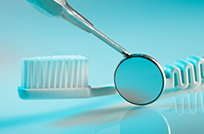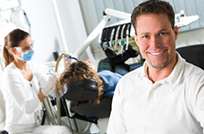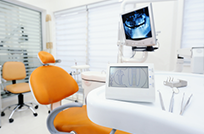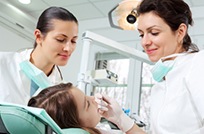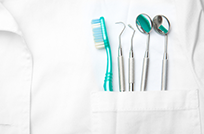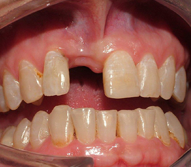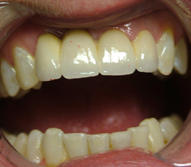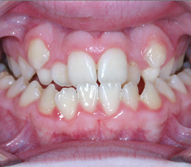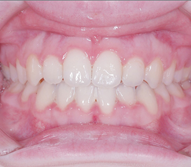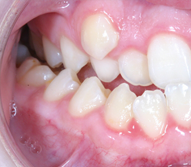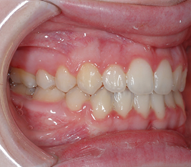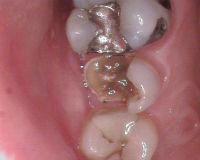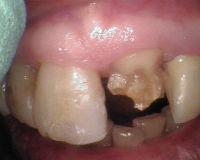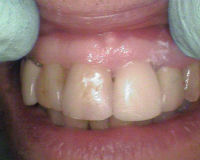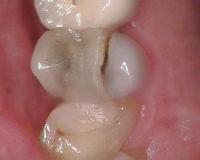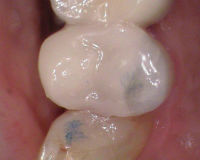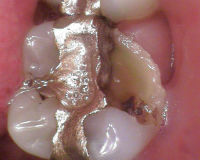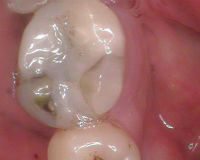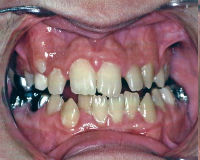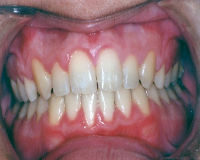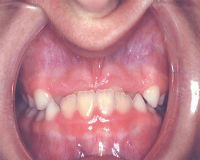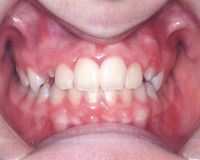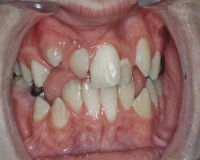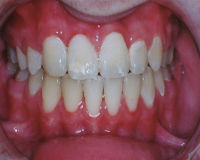What are the symptoms of oral cancer?
It's called the big C for a reason. Cancer is something no one likes to think about. The best way to avoid it is to know the facts so you can seek medical attention if you suspect you might be experiencing common symptoms.
We don't all need to be researchers, but knowing the basics about various types of cancers could save your life. Here we'll discuss oral cancer: its symptoms, who is most susceptible, how it is diagnosed and treated and how you can prevent it.
What is oral cancer?
Oral cancer (also known as mouth or head and neck cancer) can appear anywhere in the mouth cavity as an abnormal growth or sore that does not go away. Lips, tongue, cheeks, floor of the mouth, hard and soft palate, sinuses and throat are all equally at risk. If not diagnosed and treated early, it can be life threatening.
What are the symptoms of oral cancer?
Common symptoms include:
- Swellings/thickenings, lumps or bumps, rough spots/crusts/or eroded areas on the lips, gums, or other areas inside the mouth
- The development of velvety white, red, or speckled (white and red) patches in the mouth
- Unexplained bleeding in the mouth
- Unexplained numbness, loss of feeling, or pain/tenderness in any area of the face, mouth, or neck
- Persistent sores on the face, neck, or mouth that bleed easily and do not heal within two weeks
- A soreness or feeling that something is caught in the back of the throat
- Difficulty chewing or swallowing, speaking, or moving the jaw or tongue
- Hoarseness, chronic sore throat, or change in voice
- Ear pain
- A change in the way your teeth or dentures fit together
If you are experiencing any of these symptoms, we recommend you contact your dentist right away.
Who is most at risk for developing oral cancer?
- Smokers
- Cigarette, cigar, or pipe smokers are six times more likely than nonsmokers to develop oral cancers.
- Smokeless tobacco users
- Users of dip, snuff, or chewing tobacco products are 50 times more likely to develop cancers of the cheek, gums, and lining of the lips.
- Excessive consumers of alcohol
- Oral cancers are about six times more common in drinkers than in nondrinkers.
- Family history of cancer.
- Excessive sun exposure, especially at a young age can cause lip cancer.
How is oral cancer diagnosed?
As part of your routine dental exam, your dentist or hygienist will conduct an oral cancer screening exam including feeling for any lumps or irregular tissue changes in your neck, head, face, and oral cavity. When examining your mouth, your dentist will look for any sores or discolored tissue as well as check for any signs and symptoms mentioned above. If you have symptoms that suggest oral cancer, a small sample of tissue may be removed (a biopsy). Usually, a biopsy is done using local anesthesia. A pathologist then looks at the tissue under a microscope to check for cancer cells. A biopsy is the only sure way to know if the abnormal area is cancerous.
How common is oral cancer in Canada?
In Canada, oral cancer is the 13th most common cancer (of the 23 reported cancers). According to Health Canada: 'In 2009, the number of new cases and death due to oral cancer is predicted to be almost three times higher than that of cervical cancer and almost double the rates of liver cancer. Oral cancers are also predicted to have higher numbers of new cases and deaths in 2009 than stomach, brain and ovary cancers.'
How is oral cancer treated?
Oral cancer is treated the same way many other cancers are treated- with surgery to remove the cancerous growth, and possibly followed by radiation therapy and/or chemotherapy (drug treatments) to destroy any remaining cancer cells.
How can you prevent oral cancer?
- Don't smoke or use any tobacco products.
- Drink alcohol in moderation
- Eat a well-balanced diet.
- Limit your exposure to the sun. When in the sun, use UV-A/B-blocking sun protective lip balm.
- See your dentist regularly.
Generally, it's always a good idea to know your family health history and visit your dentist regularly so as to detect problems early on. If you notice anything abnormal or are experiencing any oral pain or discomfort, don't ignore it. This is your best chance at avoiding oral cancer.
If you have any questions or comments, please contact us by clicking the button below!


